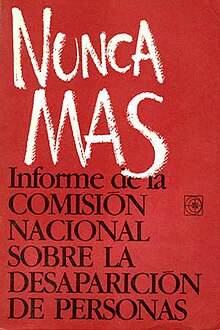Life imprisonment is any sentence of imprisonment for a crime under which convicted criminals are to remain in prison for the rest of their lives or indefinitely until pardoned, paroled, or commuted to a fixed term. Crimes that warrant life imprisonment are usually violent and/or dangerous. Examples of crimes that result in life sentences are murder, torture, terrorism, child abuse resulting in death, rape, espionage, treason, drug trafficking, drug possession, human trafficking, severe fraud and financial crimes, aggravated criminal damage, arson, and hate crime, kidnapping, burglary, and robbery, piracy, aircraft hijacking, and genocide, crimes against humanity, war crimes, severe cases of child pornography, or any three felonies in the case of a three-strikes law.

The Caravan of Death was a Chilean Army death squad that, following the Chilean coup of 1973, flew by helicopters from south to north of Chile between September 30 and October 22, 1973. During this foray, members of the squad ordered or personally carried out the execution of at least 75 individuals held in Army custody in certain garrisons. According to the NGO Memoria y Justicia, the squad killed 97 people: 26 in the South and 71 in the North. Augusto Pinochet was indicted in December 2002 in this case, but he died four years later before a verdict could be rendered. His trial, however, is ongoing since his and other military personnel and a former military chaplain have also been indicted in this case.
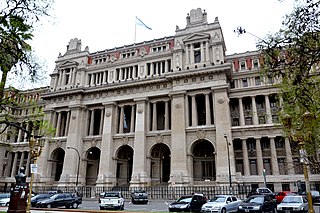
The Supreme Court of Argentina, officially known as the Supreme Court of Justice of the Argentine Nation, is the highest court of law of the Argentine Republic. It was inaugurated on 15 January 1863. However, during much of the 20th century, the Court and the Argentine judicial system in general, lacked autonomy from the executive power. The Court was reformed in 2003 by the decree 222/03.

Luciano Benjamín Menéndez was an Argentine general and convicted human rights violator and murderer. Commander of the Third Army Corps (1975–79), he played a prominent role in the murders of social activists.

The Full stop law, Ley de Punto Final, was passed by the National Congress of Argentina in 1986, three years after the end of the military dictatorship of the Proceso de Reorganización Nacional and restoration of democracy. Formally, this law is referred to by number, like all others in Argentine legislation, but Ley de Punto Final is the designation in common use, even in official speeches.
The Trial of the Juntas was the judicial trial of the members of the de facto military government that ruled Argentina during the dictatorship of the Proceso de Reorganización Nacional, which lasted from 1976 to 1983. It is so far the only example of such a large scale procedure by a democratic government against a former dictatorial government of the same country in Latin America.

In 1989, 40 members of Movimiento Todos por la Patria (MTP) attacked the military barracks in La Tablada, in Buenos Aires Province, Argentina. 39 people were killed and 60 injured by the time the Argentine army retook the barracks. The MTP was commanded by former ERP leader Enrique Gorriarán Merlo. It carried out the assault under the alleged pretense of preventing a military coup supposedly planned for the end of January 1989 by the Carapintadas, a group of far-right military officers who opposed the investigations and trials concerning Argentina's last civil-military dictatorship (1976-1983).
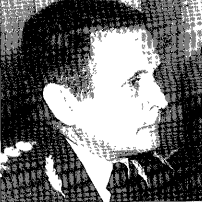
Miguel Osvaldo Etchecolatz was an Argentine police officer, who worked in the Buenos Aires Provincial Police during the first years of the military dictatorship of the 1970s, known as the National Reorganization Process, which Etchecolatz was deeply involved in. He was first convicted of crimes committed during this period in 1986; the full stop law, which passed that year and created amnesty for security officers, meant that he was released without a sentence. In 2003, Congress repealed the law and the government re-opened prosecution of crimes committed during the Dirty War.

The Revised Penal Code contains the general penal laws of the Philippines. First enacted in 1930, it remains in effect today, despite several amendments thereto. It does not comprise a comprehensive compendium of all Philippine penal laws. The Revised Penal Code itself was enacted as Act No. 3815, and some Philippine criminal laws have been enacted outside of the Revised Penal Code as separate Republic Acts.

The Day of Remembrance for Truth and Justice is a public holiday in Argentina, commemorating the victims of the Dirty War. It is held on 24 March, the anniversary of the coup d'état of 1976 that brought the National Reorganization Process to power.
The history of human rights in Argentina is affected by the Dirty War and its aftermath. The Dirty War, a civic-military dictatorship comprising state-sponsored violence against Argentine citizenry from roughly 1976 to 1983, carried out primarily by Jorge Rafael Videla's military government. However, the human rights situation in Argentina has improved since.
Articles 108 through 108-C of the Penal Code of Peru define crimes similar to those known as murder in Anglophone countries. The term asesinato ("murder") is no longer used in the Penal Code since 2014.
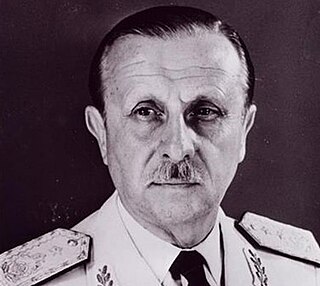
Omar Domingo Rubens Graffigna was an Argentine Air Force officer who served in the second military junta of the National Reorganization Process dictatorship. Along with Santiago Omar Riveros, he was one of the last two surviving members of the dictatorship. On 8 September 2016 he was sentenced to 25 years' imprisonment for crimes during the dictatorship.

Myriam Bregman is an Argentine lawyer, activist, and politician. Raised in a Jewish family, Bregman joined the Socialist Workers' Party (PTS) – a Trotskyist Argentine party of which she is among the most prominent members – while studying a degree in law at the University of Buenos Aires in the 90s.
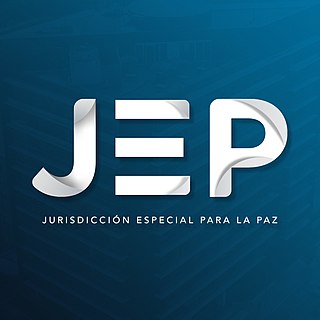
The Special Jurisdiction for Peace, also known as Special Justice for Peace, is the Colombian transitional justice mechanism through which FARC members, members of the Public Force and third parties who have participated in the Colombian armed conflict are investigated and put on trial.

Fernando José Báez Sosa, an 18-year old Argentine law student, was beaten to death at the Le Brique nightclub in Villa Gesell, Buenos Aires Province, on 18 January 2020 by a group of eight rugby players from Zárate, Buenos Aires. The case attracted significant nationwide media attention due to the violent nature of the crime and the extensive footage spread on social media. The murder has also been dubbed by Argentine media as the crime of the rugbiers and the crime of Villa Gesell.
The Juicios por la Verdad are a judicial proceeding without criminal effects that took place in Argentina due to the impossibility of criminally prosecuting those responsible for the crimes against humanity perpetrated during the last civil-military dictatorship (1976-1983), in view of the passing of the Due Obedience and Full Stop laws and the pardons granted to the members of the military juntas. These oral trials were the result of the struggle of human rights organizations that sought alternative strategies to confront impunity through the judicial search for the truth.

The Posadas Hospital Trial is the name given to the court case for crimes against humanity committed in the clandestine detention center (Argentina) called "El Chalet", located inside the Posadas Hospital, during the military dictatorship called the National Reorganization Process.
In Argentina, the term "impunity laws" refers to two laws and a series of presidential decrees enacted between 1986 and 1990, which prevented the prosecution or execution of convictions against perpetrators of crimes against humanity during the state terrorism carried out by the Military Junta in the 1976 civil-military coup d'état, which governed from 1976 to 1983. On May 3, 2017, the Supreme Court issued a ruling that allows the sentences of persons found guilty of crimes against humanity to be significantly reduced, by application of the so-called "two for one".
The denial of state terrorism in Argentina consists of the act of denying state terrorism during the civic-military dictatorship from 1976 to 1983 called the National Reorganization Process, which was part of the Dirty War. The denialism of state terrorism in Argentina has taken different forms over time, from denying the existence of missing persons, the justification of the acts committed, or declaring that the conflict was "between two equivalent sectors that produced symmetrical damage".
